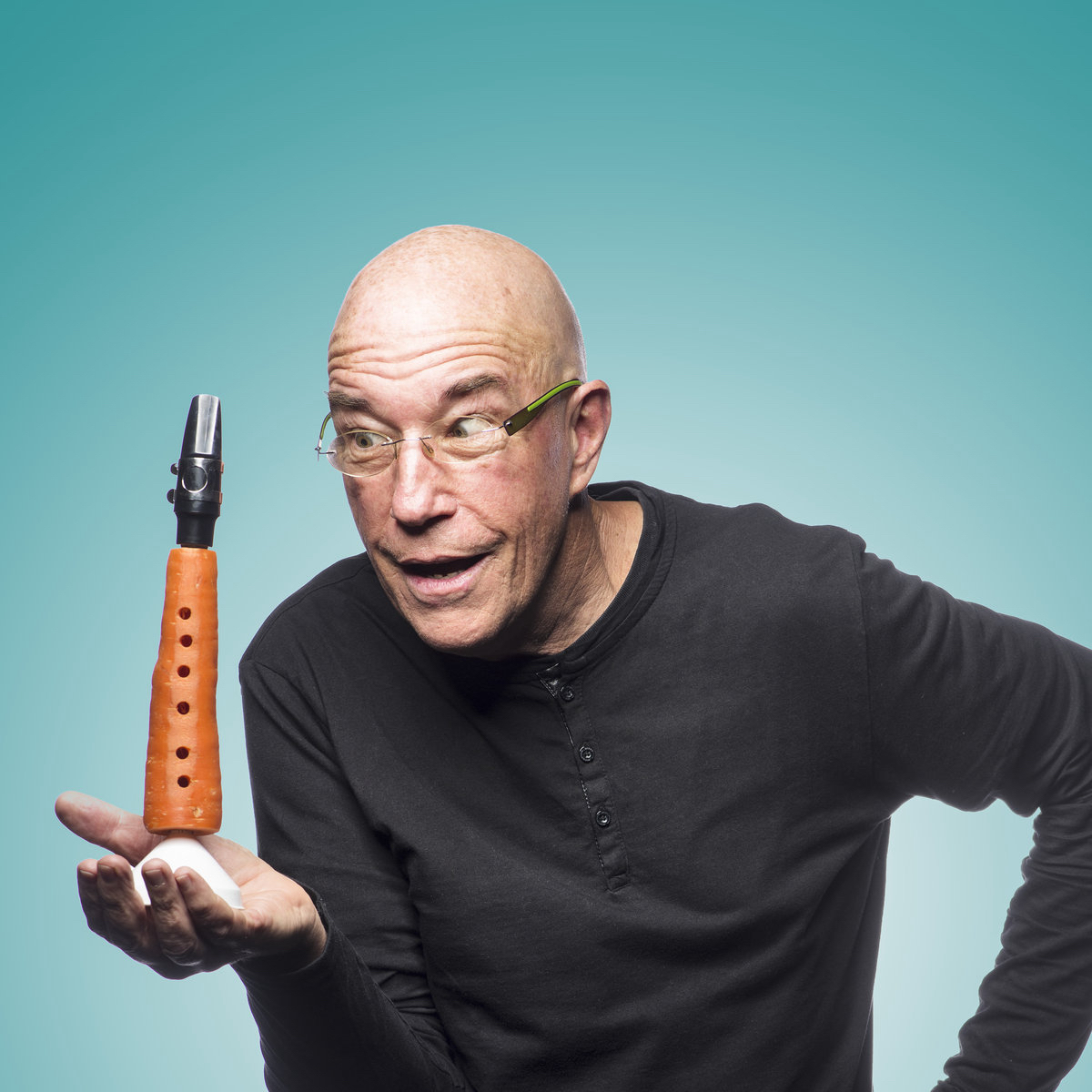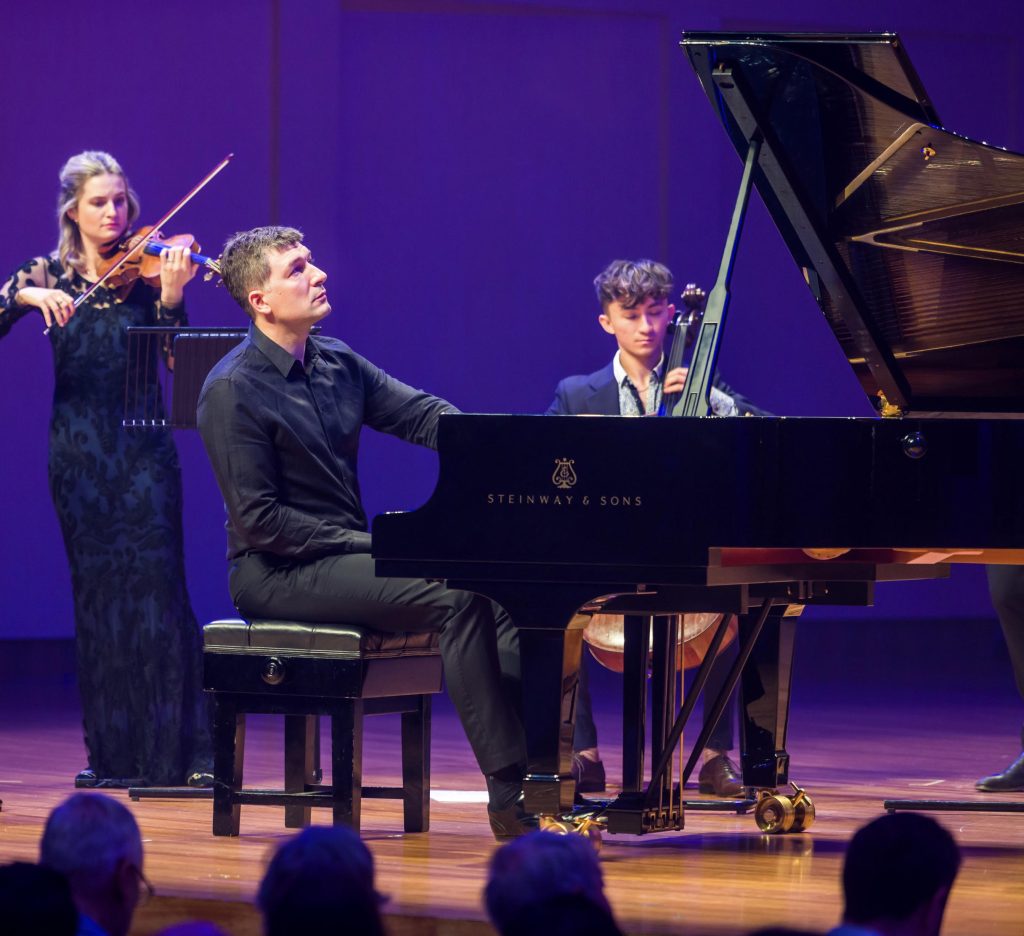
From the sublime to the seemingly ridiculous, from Beethoven’s transcendent ‘Moonlight’ Sonata to the sight of a man making an instrument out of a carrot – and playing it – the 20th Bangalow Chamber Music Festival promises to explore a wide range of musical expression.
What is guaranteed throughout is the exceptionally high quality of the performances: Carrot Man, for instance, is Linsey Pollak, a world-famous clarinettist and instrument maker with a background in sharing an idiosyncratic history of the clarinet, complete with practical demonstrations.
And the performer at the keyboard bringing the Beethoven to life is none other than Konstantin Shamray, described by the Festival’s artistic director, Tania Frazer, as the finest pianist in Australia.
They are just two of the world-class talents providing a rich and varied programme designed to both entertain and inform, carefully curated for such a significant anniversary.
This year’s Emerald event also features an unusually large number of ‘home-grown’ performers, Tania says.
“Many came back to Australia from big careers overseas during the COVID pandemic and stayed. The cultural landscape has changed in the past two decades, so that such top talents can now find a place where they are able to pursue a decent career.”
Among them is Rachel Siu, a Sydney-based cellist whose playing has been described as ‘fearless’ by Yo-Yo Ma, himself famous for his extraordinary technique. Other virtuoso performers include those who began their careers exceptionally young: Alexandra Osborne was the youngest member of the violin section of the National Symphony Orchestra in Washington DC when she joined; flautist Emma Sholl was one of the most youthful musicians ever appointed to Sydney Symphony; and cellist Guillaume Wang made his solo debut with the Queensland Symphony Orchestra aged 15.
These and other young stars will appear alongside the Festival’s more seasoned resident ensemble, the Southern Cross Soloists (SXS), the even fresher faced SXS Next Gen Artists, and another group of Festival regulars, the Orava Quartet.
The programme mixes the familiar – the Beethoven Sonata, Elgar’s Enigma Variations, Brahms’ Clarinet Quintet in B minor – with the less well known, including Erwin Schulhoff’s eclectic Five Pieces for String Quartet, Charles Ives’ philosophical The Unanswered Question and the World Premiere of a work by SXS International Ambassador Sean O’Boyle, written especially for young violinist Courtenay Cleary, who will perform it on the Friday night.

The Festival’s pinnacle performance comes on the Sunday afternoon, with Konstantin Shamray playing Rachmaninov’s piano extravaganza, Rhapsody on a Theme of Paganini.
With the word ‘chamber’ inserted into the event’s title for the first time, the 2023 Festival can truly consider itself as having come of age in, Tania says.
She was there at the beginning: in fact, a Bangalow festival was the brainchild of her husband, professional musician David Schneideman. The couple had returned to Australia from Europe and Israel, where they had worked with virtuoso artists such as operatic soprano Jessye Norman, violin great Itzhak Perlman and the electrifying conductor Zubin Mehta, and wanted to bring something of that experience home.
In 2002, helped by such eminent contacts, they were able to lure some of the world’s top soloists to the fledgling Bangalow festival.
“That was the beginning of Bangalow’s relationship with audiences from all over Australia who were hungry for more,” Tania says. “The Bangalow Festival provided – and still provides – the perfect combination of high culture and country comfort.”
She sees this year’s programme as a reflection of a growth in audience discernment.
“It is not art for art’s sake, but it resists any moves to become more populist. As always, the plan is to provide music that stirs emotions and creates atmosphere – forging connection between performers and audiences that the intimacy of the Bangalow concerts has become famous for.
“We now have an audience whose expectations of excellence have been nurtured over two decades, which makes the performers’ jobs both more challenging and more rewarding.”
Coupled with that professional satisfaction is the simple pleasure of being able to visit Bangalow, she says: “One of the most pleasing aspects of managing this festival is the enjoyment of the artists, most of whom are eager to return to the simple, unpretentious charms of a rural town.”
And while the emphasis on delivering artistic excellence hasn’t changed over 20 years, the setting certainly has.
“Twenty years ago, there was no backstage at the A&I Hall,” Tania says. “The performers had to stack their music cases in a corner; there was no changing or warm-up room for them; they shared toilets with the audience.”
The hall and the Festival have blossomed since those early days – as has Bangalow, a small town now firmly located on the nation’s cultural map.
Digby Hildreth